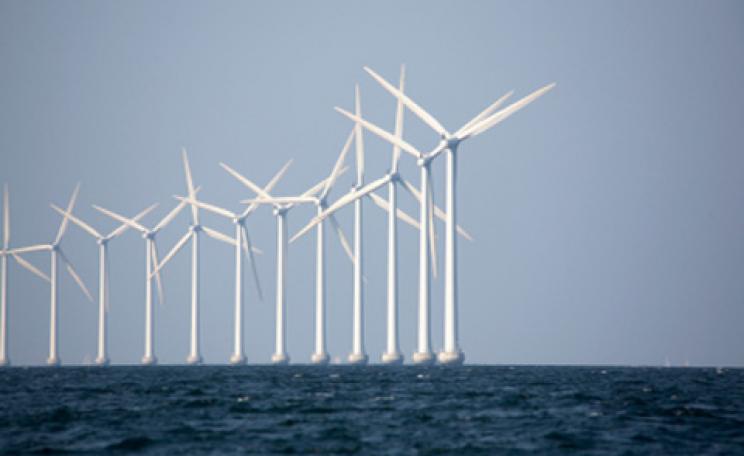Festivals are notoriously bad for the environment. Thousands of revellers descending on a patch of grass for a high spirited weekend, with food, water and sanitary requirements all needing to be met from scratch. Then there’s the energy needed to power stages and lights, the mounds of rubbish left behind and the carbon produced by thousands of cars and buses all heading in the same direction. But despite the huge footprint, a growing number of festivals claiming to be green are popping up. So do their claims stand up? And can festivals ever be green?
When you think of environmental and ethical festivals, the name not far from most people’s lips would be Glastonbury. However, the strain on Worthy Farm, home of the festival, is so great, owner Michael Eavis leaves the site fallow every few years to allow it time to recover. This year is one such year (triggered in part by a conflict over portaloos with the London Olympics), and another Somerset festival is looking to step in and fill the gap. The Sunrise festival site, near Bruton, is completely powered by renewables, allows patrons to refill water bottles to cut down on plastic waste, and is the first UK festival to have site-wide compost toilets.
Over the last few years, the festival has won numerous awards, including the Guardian’s Ethical Travel Award 2011. According to co-founder Sophie Docker Sunrise’s growing reputation for its environmental approach is well deserved. ‘We believe we have the most comprehensive green policy and strategy of all UK music festivals and we aim to keep Sunrise in the front line of the debate, while providing practical information to take home on how to minimise our impact on the planet and live an empowered, sustainable life.’ This year they hope to increase the numbers travelling to the festival by bike to cut down the carbon footprint of transport. In a bid to make it as practical as possible, organisers will this year provide 100 tents removed from last year’s Glastonbury Festival site, so cyclist are spared the burden of having to carry heavy kit. The festival is also looking to further reduce its waste and dependency on biofuels, and has plans to become the UK’s first “Transition Festival”.
But how ‘green’ can a festival actually be. Apart from the energy used to power amps, lights and sound systems, there is food and packaging waste, and carbon footprint from everyone getting to the site.  The Øya Festival in Norway is often cited as the greenest festival in the world, but even at capacity the site only holds 16,000 people. Festival Republic runs some of the UK’s biggest festivals including the Reading and Leeds Festivals every August bank holiday, regularly receiving crowds in excess of 100,000. Festival Republic’s Holly Jones says that while she doesn’t think a large festival can ever be entirely carbon neutral there are ways to reduce the impact. ‘Audience travel represents the biggest chunk of carbon emissions at all our festivals. Almost all our festivals are located in parks, outside cities like Leeds or Ipswich so people tend to drive. The biggest challenges is to try and engage with the audience when it comes to green issues.’
The Øya Festival in Norway is often cited as the greenest festival in the world, but even at capacity the site only holds 16,000 people. Festival Republic runs some of the UK’s biggest festivals including the Reading and Leeds Festivals every August bank holiday, regularly receiving crowds in excess of 100,000. Festival Republic’s Holly Jones says that while she doesn’t think a large festival can ever be entirely carbon neutral there are ways to reduce the impact. ‘Audience travel represents the biggest chunk of carbon emissions at all our festivals. Almost all our festivals are located in parks, outside cities like Leeds or Ipswich so people tend to drive. The biggest challenges is to try and engage with the audience when it comes to green issues.’
A Greener Festival is a non-profit company that evaluates festivals on their environmental impact. Director Luke Westbury agrees its ultimately down to those who pay their money to attend. ‘Any number of fantastic initiatives or policies that are put in place by a festival can often be made successful or rendered useless by a mass audience that does or does not adhere to them,’ he comments. ‘The effect of several thousand people's behaviour, in my opinion, has more of an impact than responsible recycling and disposal of waste.’
Engaging with their patrons is a key objective of Festival Republic’s strategy to ‘green’ some of the UK’s largest events, ‘We have at our festivals an amazing bunch of "Green Messengers" (around 150-200 volunteers per festival) getting their hands on the green stuff,’ says Jones, ‘This group of volunteers are the core of our recycling operation, helping at the recycling exchange points, spreading the green message amongst the festival goers, collecting camping gear. We try really hard to communicate that people should take their tents home after the festival. This is a real issue as on Monday morning after the festival we find a field empty of people, but with thousands of tents that have been left behind.’
 Organiser and co-founder of the Sunrise festival, Daniel Hurring, spoke to the Ecologist about the challenges facing festival organisers. ‘One is the prohibitive cost of green infrastructure – [it’s] difficult to access and in short supply ¬– and it’s often a balance therefore of achieving a “green” event within the bounds of economic sustainability. We're a small festival and thereby only have a limited – and stretched – budget but we're also unwilling to make any major sacrifices in our aim of creating a truly sustainable event. We try to be at the frontiers of technology and thought,’ he continues, ‘in terms of sustainability, and enjoy innovation. Much of the green infrastructure in existence is relatively small-scale. For instance, there is only around 120kw of hireable mobile solar and wind power available on the UK outdoor event circuit, a pitiful amount that one single diesel generator could match without a problem. This not only makes it hard to come by but also puts off other larger events from taking this path. The infrastructure simply does not exist to support their interest. But this is gradually changing.’
Organiser and co-founder of the Sunrise festival, Daniel Hurring, spoke to the Ecologist about the challenges facing festival organisers. ‘One is the prohibitive cost of green infrastructure – [it’s] difficult to access and in short supply ¬– and it’s often a balance therefore of achieving a “green” event within the bounds of economic sustainability. We're a small festival and thereby only have a limited – and stretched – budget but we're also unwilling to make any major sacrifices in our aim of creating a truly sustainable event. We try to be at the frontiers of technology and thought,’ he continues, ‘in terms of sustainability, and enjoy innovation. Much of the green infrastructure in existence is relatively small-scale. For instance, there is only around 120kw of hireable mobile solar and wind power available on the UK outdoor event circuit, a pitiful amount that one single diesel generator could match without a problem. This not only makes it hard to come by but also puts off other larger events from taking this path. The infrastructure simply does not exist to support their interest. But this is gradually changing.’
If you're heading to a festival this summer, Westbury has some advice for those concerned with more than just the line-up. ‘It's key to look at what they're promoting in terms of audience transport, behaviour on site, camp site etiquette, waste disposal plans and generally whether they're promoting environmental sustainability. I believe that it should be made plain and obvious to anyone purchasing a ticket what that event is doing to be as sustainable as possible. There is no excuse, given the number of ways that an event can communicate with its audience, not to highlight environmental issues.’
For more information on the Sunrise Festival, see www.sunrisecelebration.com. Festival Republic are currently recruiting people for their Green Team for Reading and Leeds 2012. For more information, email: [email protected]
| READ MORE... | |
 |
GREEN LIVING Top 10… water inspired breaks Last month’s downpours might have put you off water for life but that doesn’t mean a watery getaway isn’t worth a look. Ruth Styles rounds up 10 of the best |
 |
GREEN LIVING How to… power down your home while you're away If you want to return from holiday to a low electricity bill and a guilt-free conscience, power down your home before you go. Not sure how? Rachael Stubbins has more |
 |
GREEN LIVING How green is your fuel? In an exclusive extract from 'Ampera We're Electric', Andrew Simms takes a closer look at what powers our cars and asks whether motoring has a greener future to look forward to |
 |
GREEN LIVING On Stevenson’s trail: honey and horses in the Cévennes Robert Louis Stevenson’s account of his epic 1879 journey through the Cévennes is one of the high points of travel literature but as Ruth Styles found out, there’s still plenty to be discovered |
 |
GREEN LIVING How to… pitch a tent (and make it stay put) Camping is a Great British institution that won’t be going out of fashion any time soon. Former Scoutmaster Charles Rosin explains how to pitch your tent like a pro |








